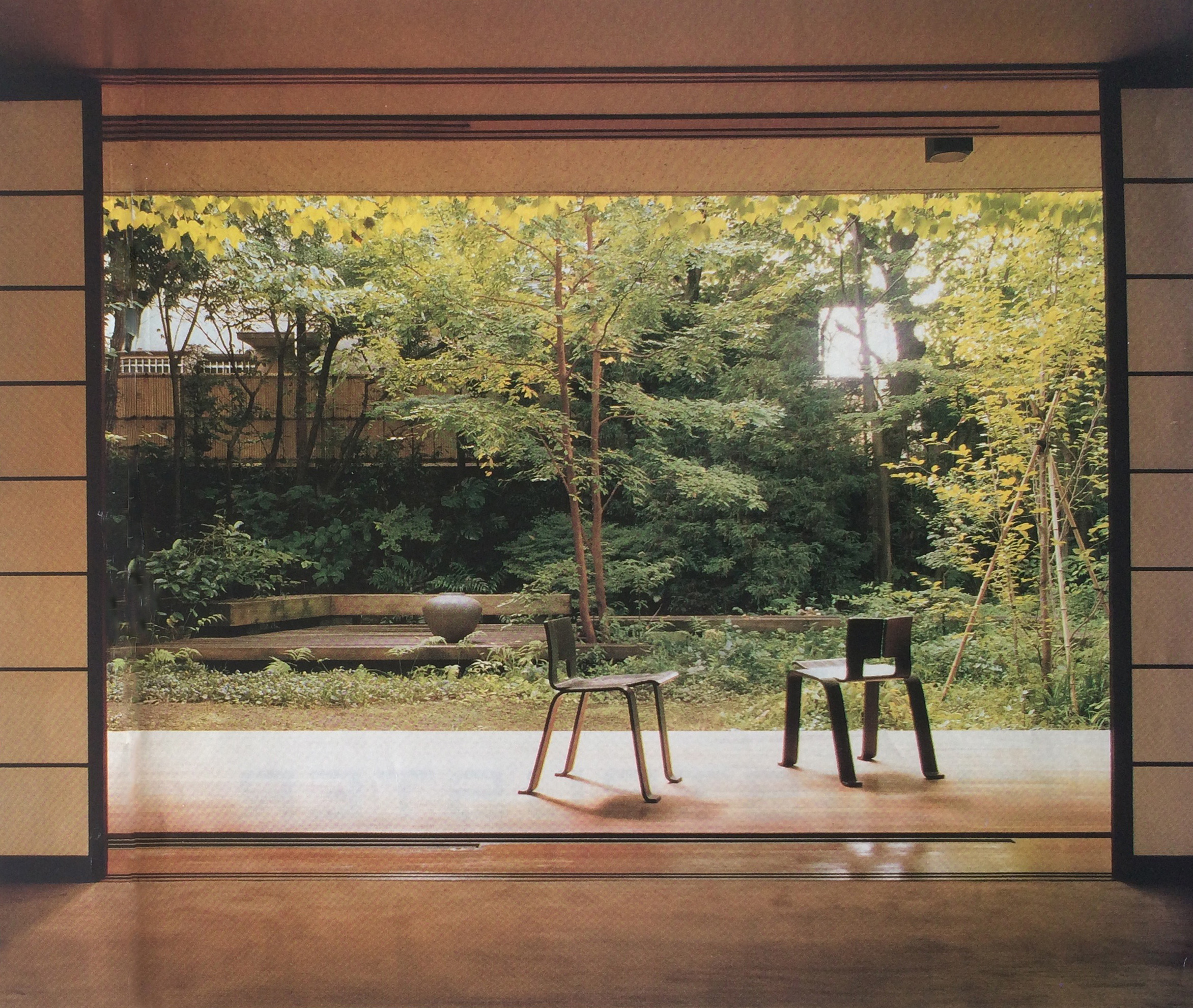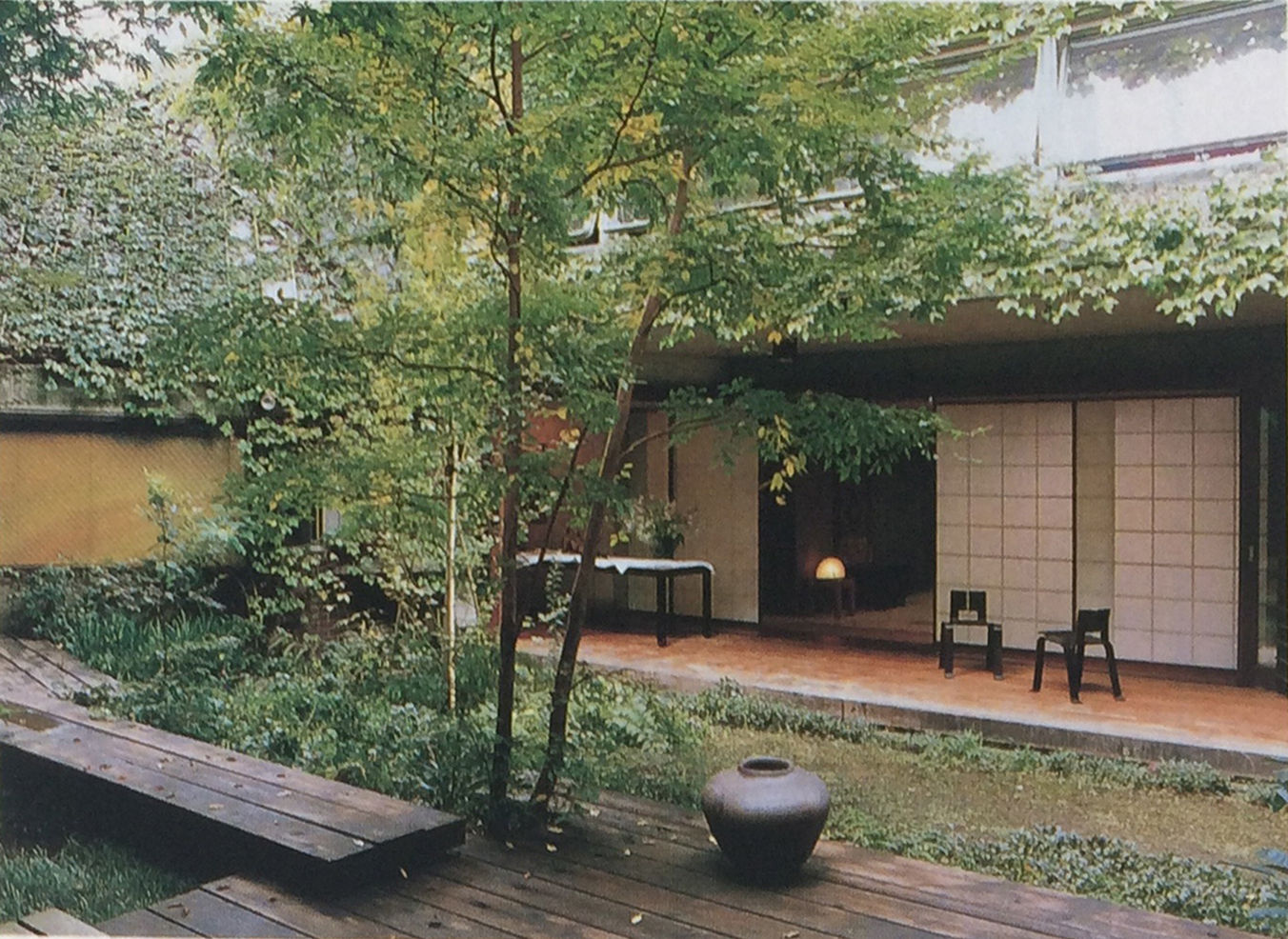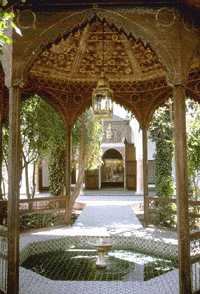Gazebo Westhampton Beach
INSIDE OUT/OUTSIDE IN
Wisteria growing along an abandoned estate wall draws a sharp yet mellow contrast between the old decaying façade and the fresh colorful growth. The Japanese have a word for such aesthetic shibui understated elegance
Wisteria growing along an abandoned estate wall draws a sharp yet mellow contrast between the old decaying façade and the fresh colorful growth. The Japanese have a word for such aesthetic shibui understated elegance
During his virtual garden tour Keith Geller speaks in depth about the planning of a garden space. A garden is not unlike our indoor space where we have different 'rooms', each with their own purpose. He says we have to consider the amount of shade and light each area gets so we can plan(t) appropriately.

Light plays it’s part when layering the garden from the ground level starting with moss and ferns all the way up to the trees tops. A gardner who goes into depth about all of these layers is Thomas Rainer in his blog grounded design (a man after my own heart).
Light gives the garden a visual vitality. Transitioning from “room” to “room”, the drama is heightened by hiding a sculpture from view along a path only to have it leap out after passing the bush that was hiding it.
Geller views his gardens from multiple vantage points - including the house. He talks of keeping open to view certain appealing vistas which are beyond the garden. I recall Tony Chi's comment that the room does not stop at the window. In garden speak this is shakkei.
Water too is an important element of the garden, even if it’s simply placed in a carved out rock for the wildlife. This wildlife is part of the ecosystem of the garden and acts as a pollinator and as a natural pesticide.
Then there is the beauty of the colors to consider…
the urban garden of keith geller
What I find fascinating about gardens is that they are like site specific art works because they are ever changing with climate conditions due to season or whether. It seems that picking the right plant according to its placement and the weather conditions is crucial.
INSIDE OUT/OUTSIDE IN
INSIDE OUT/OUTSIDE IN
POOLS AND GAZEBOS
Family’s beach house gazebo where I spent many hours lazily reading, napping and listening to the surround sound - nature.
POOLS AND GAZEBOS
Family’s beach house gazebo where I spent many hours lazily reading, napping and listening to the surround sound - nature.
Following are a couple of examples that the wonder of gazebos offer. They are the ultimate in relaxing outdoors while feeling cocooned. For me living the life is reclining under a canapé with a refreshing drink on a warm summer’s day…daydreaming.

Low Statuary brings the eye down to the ground level. At the poolside of my parent’s garden on Long Island where BUDDHA was always ready to receive everybody.

Kettal Pavillion – sold at Karakula http://karkula.com

Elle Décor Magazine
A traditional JAPANESE GARDEN has the feeling of Inside Out and Outside In. In the 2 views of the same garden – one looking out from the house and the other looking into both the garden and house - the garden is cocooned by its surroundings.


Gardens with inner courtyards inspire us to live like Japanese, ancient Romans, Moroccans, or Persians. But where did this all begin?
Chez Visconti Photo/Chiara Viconti
Gardens with inner courtyards inspire us to live like Japanese, ancient Romans, Moroccans, or Persians. But where did this all begin?
Chez Visconti Photo/Chiara Viconti
the seat of civilization
the seat of civilization
It all started at the apex of human civilization. What became the ancient seat for learning mathematics, astronomy, agriculture, architecture, and the art of sourcing and preserving water in the desert - Mesopotamia (present day Iraq) and Iran.
WATER FEATURES
A precursor to the outdoor Riyads and Italian inner courtyards was the Persian version, the Chahar Bagh. These inner courtyards were walled-in gardens that evolved from a human need to stay cool while living under a relentless dessert sun. They also kept predators (both the human and animals variety) at bay. It was the perfect place for people to contain and venerate the symbol of their God - a tree. It was worshipped because it contained their most precious element - water. In her fascinating book, Paradise as a Garden, Elizabeth B. Moynihan investigates these lost gardens. She was the wife of the late Senator and Ambassador, Patrick Moynihan. While accompanying her husband as they travelled and lived different in places she took the opportunity to be accomplished as a researcher and writer.

RIAD Morocco Riad-Zamane-Patio

www.moroccogateway.com/blog…time for a getaway!
A fine reference comes from the English anthropologist Stephanie Dalley on locating one of the Seven Wonders of the World, Hanging Gardens of Babylon.

A welcoming place for friends and family to sit

GARDENS OF THE WORLD, the Great Traditions by Rory Stuart
Chehel Sutun in Isfahad, IRAN It's name translates as 40 columns, but there are only 20 in the portico. What gives? Well, the other 20 are reflected in the pool. It is evident there is an intimate relationship between architecture and water in Persian's lives.
VILLA LANTE Italy
VILLA LANTE Italy
The Moors inhabited Spain and parts of Italy during the Middle Ages. They left their mark on these cultures, enriching them architecture, science, irrigation and by building lovely gardens. Their influences can still be seen today because they settled the area for over 500 years. Eventually and sadly they were forcefully expelled from these countries.
Bay and pool meet
Bay and pool meet
In 1947 Landscape Architect Thomas Church put the kidney shaped pool on the map. Taking his cue from the painter Jean Miro's bimorphic curves a mid-century genre of design was born. Oh if only he had trademarked his idea...as they say hindsight is 20/20.
Aquatic flowers in bloom New York Botanical Garden’s Aquatic Pool, in the Conservatory.
the old shed for pool pump
Pine needles collecting on pool surface after a storm.
carpets as groundplans
carpets as groundplans
At a time when people said I could not succeed in making a rug without a border, I found myself one of the forerunners for placing art on the floor.
Autumn Leaves 1991
At a time when people said I could not succeed in making a rug without a border, I found myself one of the forerunners for placing art on the floor.
Autumn Leaves 1991
Only recently have I come to realize that my supposed daring, breakthrough approach to carpet design with its borrowed floor imagery and cutting edge materials was full of hubris. It is not revolutionary at all! The true pioneers existed centuries ago. The first known carpets coming from Persia replicate their garden topography and layouts. Plants, animals, and waterways were incrusted with stones bright as crystal to give the illusion of water and branches were made of gold or silver. Leaves and flowers of silk. What a sumptuous palette.
Here are a couple of references for the history of carpet design.
floor plans for the garden
floor plans for the garden
Villa Lante - left side
While taking a class in the History of Landscape Design we were asked to render an 15-17th C Italian garden. I chose the Villa Lante because of its beautiful water course shown above. As we moved throught the centuries reviewing various gardens we were asked to superimpose an English Picturesque Garden on a garden of our choice. An 18th C picturesque garden consists of juxtoposing ruggedness with pastorial tranquility. Because I have a hard time with the English Manors as closed enclaves for the wealthy Dukes, Earls and Lords who had no problem raping their colonial underlings on the one hand while back home they kicked their tenant farmers off their lands to create the Picturesque forcing them into Dickensian poverty. Therefore I decided that the one type of garden I could imagine would be for all classes to enjoy - especially children. I added "rooms", informatlity, and follies to create this effect.
Here is my plan of the Villa Lante and below how I chose to transforme it into a park for all.
the whole of Villa Lante transformed into a park for all

AN ENGLISH GARDEN
A carpet rendering I did over 20 years ago based upon the topography of An English Garden researched at Minnesota Landscape Aboretum http://www.arboretum.umn.edu Eventually we interpreted the design for tiles.
It wasn’t until I started volunteering at the New York Botanical Garden that I realized how influenced I’ve been by nature - and my years studying in Japan. I’d made so many rugs and renderings without being consciously aware how moved I am by our natural environment and other cultures.
We seem to be forever yearning, even if we are not conscious of it, to go back to what is innately familiar. Since we are a part of the great outdoors, this connection is encapsulated in our DNA of human existence. Being a part of nature is a part of our chemical foundation.
From such divergent sources as Louis Barragan to Candace Wheeler, their experiences point in the same direction, that (Scale) we have become removed from our natural surroundings and our homes become the replacement for a very primal connection we crave.
ROCKS AT ISE 1990
Could this be why we love to live with pets? And is electricity just another way to extend the sunshine?